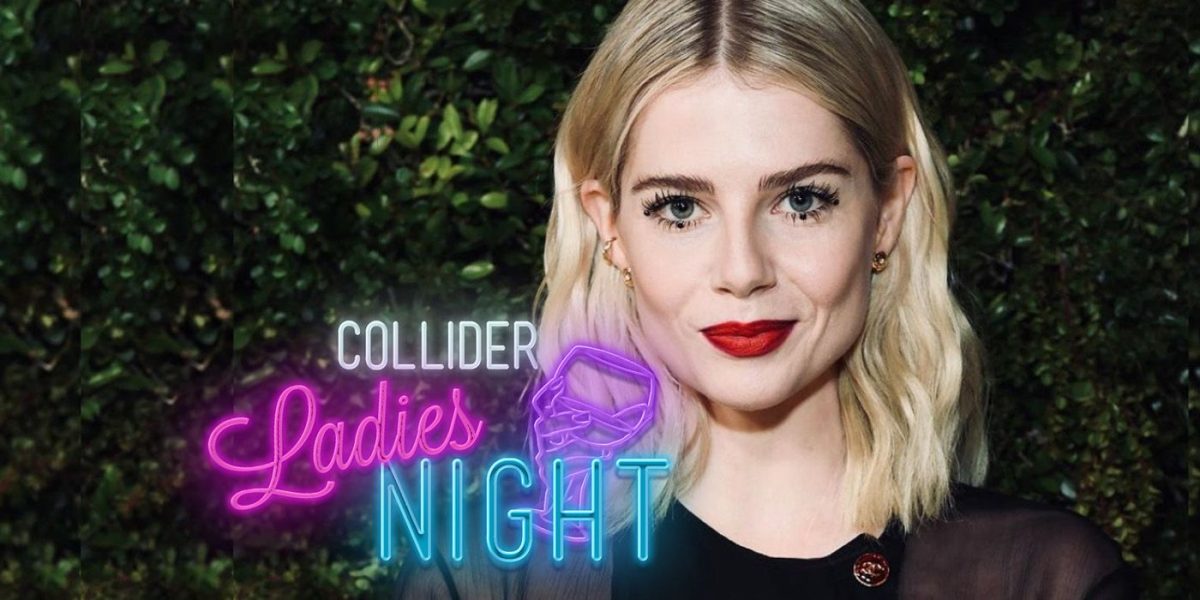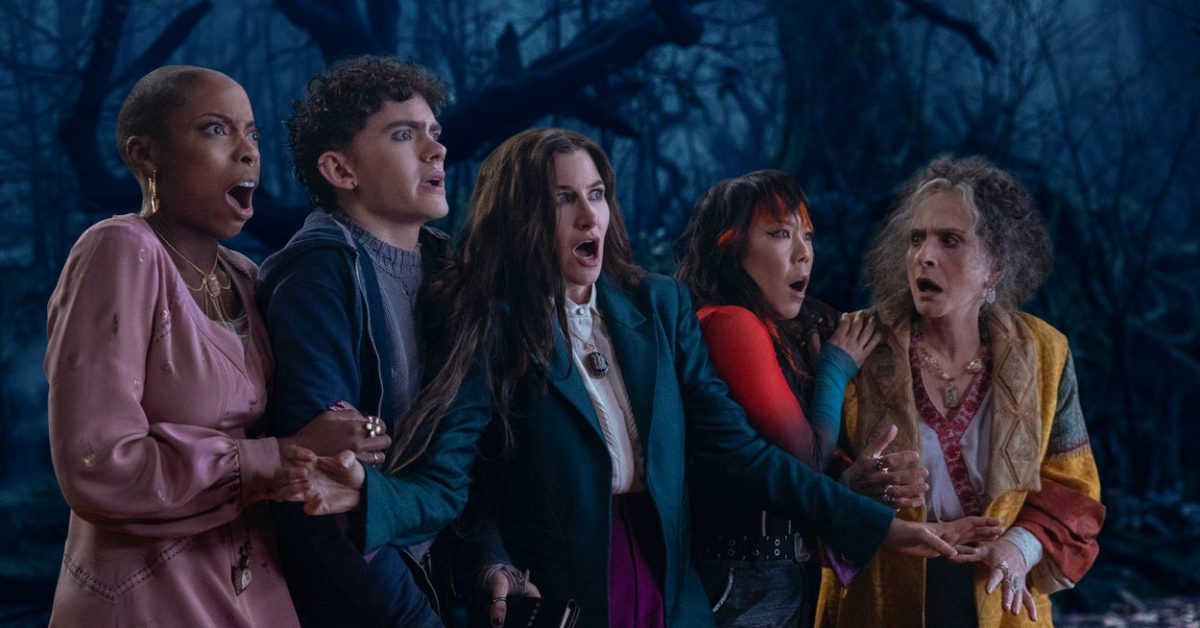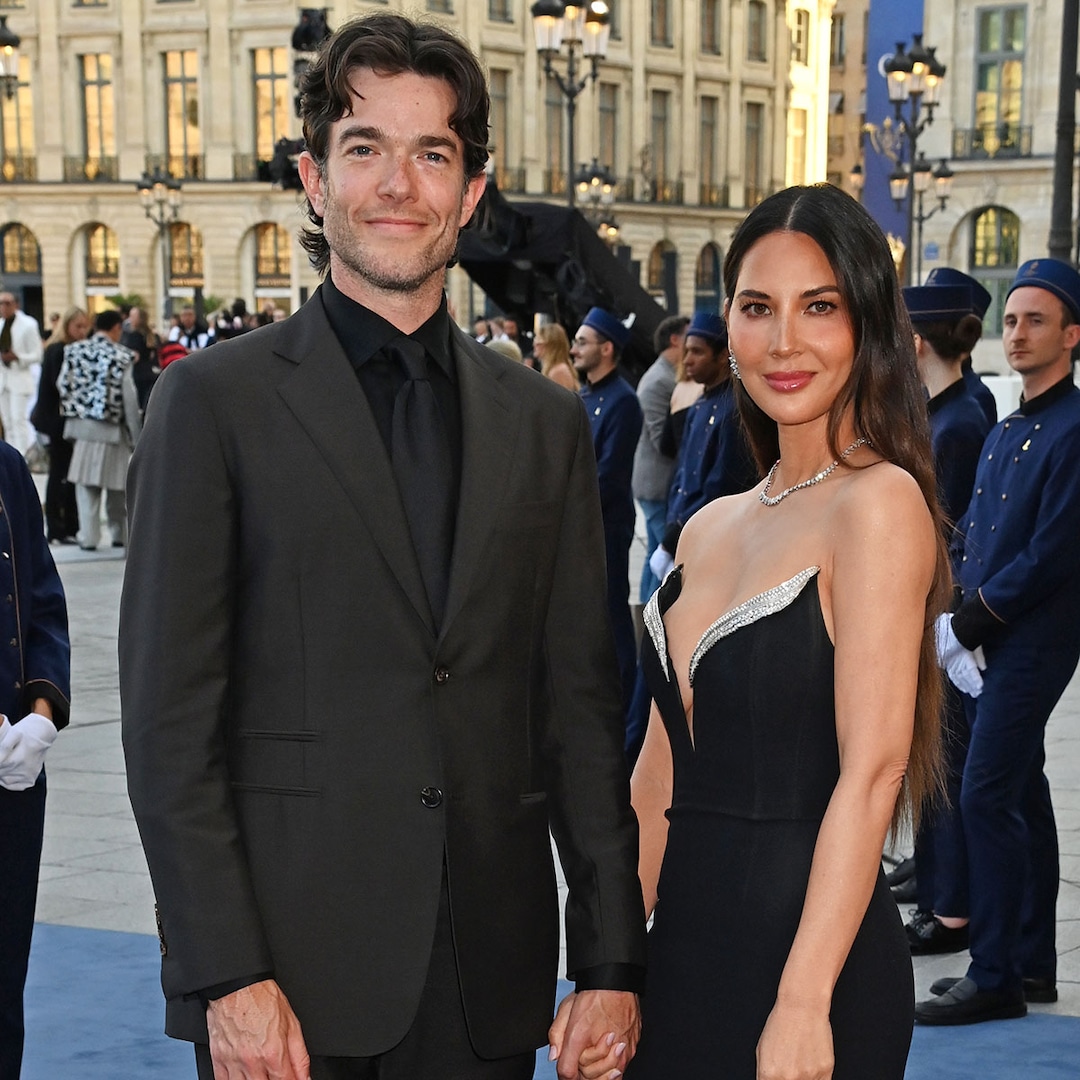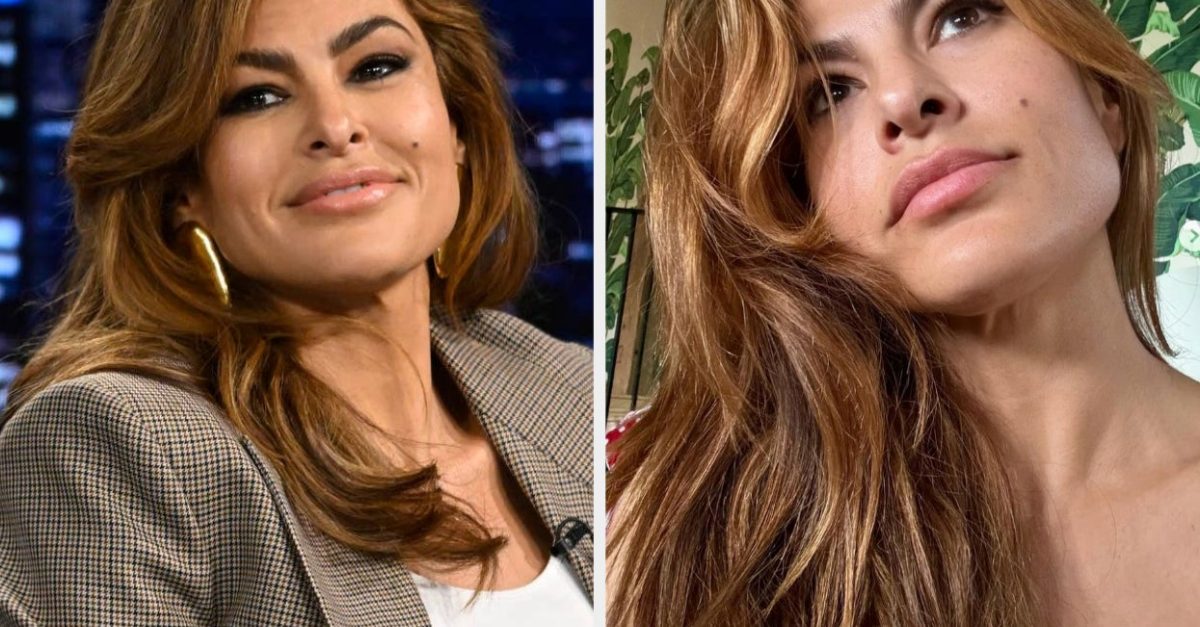
Lucy Boynton on How She Controlled Her Career Path at Just 12 Years Old
Jan 8, 2023
I’ve been actively seeking out Lucy Boynton’s work ever since catching The Blackcoat’s Daughter at the Toronto International Film Festival back in 2015. She’s been delivering big ever since, making surprising choices and showing off great range at every turn so, of course, I’ve been eager to have her as a guest on Collider Ladies Night, and now the time has come.
The icing on the cake? She’s an ideal interviewee for a show like Ladies Night. Throughout our chat, it was abundantly clear that Boynton’s an artist who’s very in touch with her craft and deeply values the influences who have helped shape the actor she’s become — or rather, the influences that have shown her she has the authority to shape her craft and her career path how she wants.
COLLIDER VIDEO OF THE DAY
In celebration of her latest feature film, The Pale Blue Eye, arriving on Netflix, Boynton joined me for a Ladies Night conversation to revisit her journey from playing a boulder in a school play (yes, a boulder) to building a filmography that’s packed to the brim with inspiring collaborators, different genres, and opportunities to take big swings.
Image via Netflix
But back to that boulder first. Here’s what Boynton said when revisiting the moment she knew she had to become an actor and nothing else:
“Doing a school play when I was 10 of The Lion, the Witch and the Wardrobe. It was the first proper role I got in a school play. Previous to that my first role in a school play was as a boulder, a literal boulder, and then a tree and then an angel, so it was a real big promotion. Instead of science teachers doubling as drama teachers we had a real actress as our drama teacher that year and she taught us in a way that I understand my job now of what it is and what it could be, of not just playing pretend but really exiting yourself and your world as you understand it and trying to find otherness and someone else’s experience. And I remember her talking about how you can act with your eyes, and no one had given us that patience of education and intricacy into what that can be as a really valid exercise or way to spend your time. And the idea that, of course, you read so much emotion from people’s eyes, the idea that you could be in control of that or the author of that was so fascinating to me. And also I think I really appreciated her talking to us in an adult way, giving us credit that we would understand something like that at such a young age.”
Not only did that school provide Boynton with more mature and very valuable acting techniques and lessons, but it also proved to be the place that would bridge the gap between recognizing the dream to act and making that dream a reality. Boynton continued:
“I went to a school that wasn’t any kind of drama school, but we had a really brilliant drama department and they used to let casting directors come watch over drama lessons or do open casting calls. A casting director, Priscilla John, watched over our drama lesson and chose myself and another girl to come to these open auditions for this film Miss Potter, and I’d grown up reading Beatrix Potter books, so I was very familiar with it. My mom let me go because she thought it’d be a great experience of rejection, and that it was so magical and far-fetched. And then, I ended up getting that role. And Priscilla John, the casting director, introduced me to my agent who I’m still with, so there is no way to comprehend how that dream and wish became that kind of reality in such a truncated time because I was 12 when I did that, so it’s surreal.”
Image via Metro-Goldwyn-Mayer
Representation can be key to getting certain opportunities, but Boynton’s longtime agent didn’t stop there. She also emphasized the fact that Boynton could have authorship over her career path, and Boynton’s held tight to that idea ever since. Here’s what she said when discussing what she values most about her relationship with her agent:
“I think because she was interested in what I wanted, even talking to a 12-year-old. She didn’t try and orchestrate or prescribe a career trajectory for me or even what type of roles I should audition for or do. And at the beginning of your career, obviously you’re kind of prone to say yes to everything, you have to, and even then she gave me a sense of understanding ‘no’ is your greatest tool, so you don’t have to do anything. So that’s really informed the way that I operate now where I love this job so much, but it’s not the be all and end all to me, and I feel like an author in it. I therefore feel like I can say no to it sometimes or be more of an architect in my career path. And to have that sense of self ownership at such a young age sets you up, I think just as a young woman, in such a powerful way. The older I got, the more I realized how grateful I was to her just for those reasons as well.”
In addition to realizing her power in shaping her career, she also discovered she could wield a similar authority over her on-screen characters courtesy of early projects like Sing Street. She explained:
“[Writer-director John Carney] had created these characters so vividly, and it was semi-autobiographical. I think I just turned up willing to be directed, not in a passive way, but in a way that really gave him all the authority and he really pushed back on that and gave all of us complete ownership of our characters, and I had never experienced it to that extent before. And especially with fictional characters where you have such limitless territory to cover, so it was a lot of responsibility and one that was so pivotal in me understanding that I had a voice worth hearing and using.”
Image via The Weinstein Company
The long-lasting Sing Street influences don’t end there. Boynton also finds herself considering, “What would Jack do” when tackling challenging scenes courtesy of her Sing Street co-star Jack Reynor. She explained:
“He was so vivid in those scenes. I think he’s the heart of the film. He would just plunge into them and go for it. And again, as a young actor, I think I was slightly more tentative and would ease my way in with takes, and he would just be so bold in trying things and be loud and take up space and really create such a saturated sense of that character that I remember just watching that within a scene and being so taken by him and just in awe of his ability to do that and be that. And I think that has really informed the way that I approach work. Genuinely in the last few years when I’ve struggled with how to do a scene I’ve been like, ‘What would Jack do?’”
The lengthy list of wildly talented individuals who have influenced Boynton’s craft isn’t limited to those she’s worked with directly. As a big reader, it’s no surprise that Boynton’s checked out (former Ladies Night guest) Betty Gilpin’s book, All the Women in My Brain: And Other Concerns. Turns out, that book well conveys a feeling Boynton turns to find confidence in herself and her ability when needed:
“[Betty] talks about sometimes finding this thing where in a scene it all stops being acting and being pretend, and it just becomes real and you really feel the feelings your character is supposed to feel and you live it for a minute. I enjoy the analytical and technical side of it, but a lot of the time it’s that. It’s trying to create something and then sometimes when you just get that feeling, that’s when it feels true and also you feel really capable I think. And so, it’s knowing I’ve had those experiences and knowing that that’s always possible. And I think that it is also weirdly freeing as well because then you’re not relying on like, ‘I’m good!’ It’s like, chase the motivation, the feeling of it all.”
Image via Netflix
When it comes to The Pale Blue Eye in particular, Boynton benefited from stepping onto a set run by a team of frequent collaborators including writer-director Scott Cooper and producer-star Christian Bale.
Bale plays Augustus Landor, a local detective brought in to investigate a grizzly crime at West Point in 1830. Landor soon realizes he won’t be able to crack the case solo so turns to a cadet for a little help, a young Edgar Allan Poe (Harry Melling). Boynton’s character, Lea Marquis, is connected in a number of ways. She’s the daughter of the West Point doctor, the sister of a West Point cadet, there’s an unexpected spark between her and Poe, and then some. (We’ll get to the “and then some” in a moment.)
Here’s what Boynton said when asked what she appreciated most about the way a Cooper/Bale set is run that she hopes to experience on more film sets in the future:
“I was really struck by the conscientiousness in different ways that Scott and Christian have for everyone on the job. Christian, especially in those climactic scenes where the environment is incredibly intense and possibly dangerous, he’s got eyes on everyone making sure they’re okay. And then Scott is so attentive in the way that he doesn’t break. He never kind of pops the bubble of the emotion that you’re in in those scenes. The way he delivers direction is so intimate and so actor friendly, I think. When both of those things are happening and those people are deeply immersed and committed to their work, the environment is just so fluid and rather than stopping and starting again, you’re constantly building on something, and you feel like a team. You feel really mutually involved in everything, which I think is so conducive to any kind of creative environment.”
Image via Netflix
[Editor’s note: The rest of this article contains spoilers for The Pale Blue Eye.]Now for the “and then some.”
We come to learn that Lea is suffering from seizures and doesn’t have long to live. In an effort to change that, Lea and her family turn to an occult ritual to prolong her life. That ritual involves sacrificing a human heart. Clearly, it’s a terrible crime to commit, but the movie finds great success in conveying that, yes, this is a heinous act, but it’s one done out of desperation by someone who’s essentially had her life stolen from her. What’s the key to sparking understanding when your character is taking lives? Here’s how Boynton put it:
“I found it really easy to empathize with her. I found it really easy to justify her actions. In discussions with Scott and as the understanding of the character evolved and kind of clicked in my brain, I think realizing who she was before this illness and then who she is when she has that kind of fire ignited in her when she’s with Poe or just well and she hasn’t had a seizure for a while, she’s someone who loves life and has this intensity about her, this hum of electricity about her that is being so dimmed by a force that she does everything to push against and is kind of succumbing to. To realize that there is this cord of hope and possibility, that there is a way out, of course she would take it, of course she would grab it. And then I think it’s really easy to go down and dark when you can justify those things and you can understand them. And I wanted to go further with the end. I wanted her to go full horror film. I was like full bloodlust! [Laughs] And Scott kept anchoring it of like, ‘Okay, but the empathy. We’ve got to empathize with her,’ and I’m like, ‘But blood!’”
Wondering what going “full horror film” might have looked like? So was I! Here’s how Boynton explained it when asked what she had in mind:
“I’ve talked a lot about finding the crossover on the Venn diagram with her where it’s prey and predator, and she is constantly playing between both, and I wanted to go full predator. When you watch animals that are predators and there’s just like a stillness and a lasering in on the prey, and it is chilling.”
Eager to hear more from Boynton on The Pale Blue Eye and her journey in the industry thus far? Be sure to watch her episode of Collider Ladies Night at the top of this article or listen to the full 30-minute conversation uncut in podcast form below:
Publisher: Source link
Every New Character Added To The MCU
Agatha All Along: Every New Character Added To The MCU Realizing that Wanda took all her power, Agatha's solution lies at the end of The Witches' Road, a series of trials that will reward those with what they are missing…
Oct 26, 2024
John Mulaney Shares Emotional Tribute to Wife Olivia Munn
"She shared her story to help anyone she could," John, who wed Olivia in July after three years together, continued. "According to the National Cancer Institute, in the week after Olivia shared the story of her breast cancer journey, there…
Oct 26, 2024
Eva Mendes Said There Have Been Times Where She’s “Regretted” Getting Cosmetic Work Done And Had To “Wait It Out”
Eva, who turned 50 this year, has previously said she would “never deny” getting cosmetic work done.View Entire Post › Disclaimer: This story is auto-aggregated by a computer program and has not been created or edited by filmibee.Publisher: Source link
Oct 25, 2024
Nicole Kidman Confirms Another Iconic AMC Ad Is “In the Making”
Nicole Kidman's 16-Year-Old Daughter Looks All Grown Up in Rare Public AppearanceWe come to this place for Practical Magic. At least, that’s a past role Nicole Kidman is channeling to tease that another AMC ad—like the movie theater chain’s original…
Oct 25, 2024










